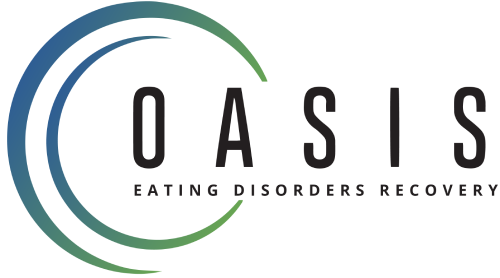Eating disorders can be deeply disruptive, affecting every facet of an individual or family’s life. From physical health to emotional well-being to family and social relationships, the repercussions of eating disorder behaviors can be far-reaching. However, there’s help available in the form of Intensive Outpatient Programs (IOPs).
What is an Intensive Outpatient Program (IOP)?
An Intensive Outpatient Program (IOP) is a type of treatment service and support program used primarily to treat eating disorders, depression, self-harm, and other types of substance abuse and addiction. Unlike traditional, inpatient treatment programs, intensive outpatient treatment allows individuals to receive high-quality care while continuing to live at home and, in some cases, maintain work or school commitments.
Eating disorders are complex mental health conditions that often involve an obsession with food, body weight, or body shape. They can significantly impact a person’s health, emotions, and ability to function in various areas of daily life. Here are some of the most common, along with a few lesser-known ones:
1. Anorexia Nervosa: Anorexia is characterized by self-starvation and excessive weight loss. Individuals with this disorder often have an intense fear and anxiety of gaining weight and a distorted body image.
2. Bulimia Nervosa: Bulimia involves repeated episodes of binge eating followed by behaviors to prevent weight gain such as forced vomiting, fasting, excessive exercise, or the misuse of laxatives or diuretics.
3. Binge Eating Disorder (BED): BED is characterized by recurrent episodes of eating large quantities of food, often quickly and to the point of discomfort. It’s usually associated with feelings of loss of control, shame, anxiety or guilt.
4. Avoidant/Restrictive Food Intake Disorder (ARFID): Formerly known as “Selective Eating Disorder,” ARFID involves limitations in the amount and/or types of food consumed, but unlike anorexia, it does not involve any distress about body shape or size, or fears of fatness.
5. Pica: This disorder involves eating non-food substances such as dirt or paper over a period of at least one month.
6. Rumination Disorder: Rumination disorder involves the repeated regurgitation of food, which may be re-chewed, re-swallowed, or spit out.
7. Orthorexia Nervosa: Although not officially recognized in the Diagnostic and Statistical Manual, awareness of orthorexia is growing. It involves an unhealthy obsession with eating “pure” or “clean” foods.
8. Night Eating Syndrome: This disorder is characterized by a delayed circadian pattern of food intake, with excessive consumption in the evening and nighttime.
9. Other Specified Feeding or Eating Disorder (OSFED): This category includes eating disorders that don’t fit into the other categories but still cause significant distress and impairment.
10. Unspecified Feeding or Eating Disorder (UFED): UFED is used when an individual clearly has an eating disorder, but doesn’t meet the full criteria for any of the other disorders.
Intensive Outpatient Programs (IOPs) can be immensely helpful for individuals struggling with any of the above eating disorders. IOPs provide a comprehensive, structured treatment program that allows individuals to live at home and maintain certain life commitments while receiving high-quality care. These programs usually involve multiple therapy sessions each week, including individual and group therapy, and nutrition counseling and nutrition education, and sometimes medication management.
At Oasis Eating Recovery, for instance, our full IOP treatment also involves regular group therapy, weekly one-on-one sessions with a therapist, and an expertly designed curriculum. This approach gives patients the time, space, and resources to work intensively on their concerns, learn about their symptoms, develop coping skills, and understand and control their emotions. By offering patients a combination of medical, therapeutic, and nutritional support, IOPs can help individuals with eating disorders regain control of their lives and move toward recovery.
Intensive Outpatient Program Treatment Modalities
IOPs employ a range of treatment methods tailored to the patient’s individual therapy needs and eating disorder. Here are some of the most common:
- Individual Therapy: This one-on-one therapy offers individuals the chance to work with a skilled therapist to address personal struggles and develop coping mechanisms.
- Group Therapy: Here, individuals come together to share experiences, learn from each other, and build a supportive community.
- Nutritional Counseling: For those with eating disorders, understanding nutrition and developing healthy eating habits is crucial.
- Family Therapy: This brings the family into the healing process, helping them understand the disorder and how they can provide support.
- Medication Management: If appropriate, medications may be used alongside therapy to treat any co-occurring mental health conditions.
How an IOP Can Help Those Struggling with Eating Disorders
IOPs can provide targeted, specialized care and support for those dealing with eating disorders. They offer a structured yet flexible environment, allowing individuals to learn and practice new skills while maintaining some of their own daily living routines.
At Oasis Eating Recovery, our full IOP program provides intensive outpatient treatment with a high level of care specifically for kids and teens. Our expertly designed curriculum offers valuable life skills, with topics such as understanding mental health symptoms, using coping skills, controlling emotions, and navigating relationships. Each individual also has the opportunity to work more intensively with a therapist on their concerns during weekly one-on-one sessions.
Recovery, hope, and eating disorder treatment are available
Overcoming an eating disorder is not a journey that anyone should undertake alone. Help is available, and it comes in the form of comprehensive, compassionate care through programs like our IOP at Oasis Eating Recovery. Remember, reaching out is the first step towards recovery and regaining control over your life.
Are you or a loved one struggling with an eating disorder? Let us guide you on your path to recovery to healing your eating disorder recovery. Contact Oasis Eating Recovery today – because everyone deserves the support they need to live a healthy, fulfilling life.
Contact Oasis Eating Recovery today!
Oasis Eating Recovery offers a variety of treatment programs to support individuals with mental health conditions. These programs include:
- Residential Inpatient Treatment for Mental Health: This intensive inpatient program is designed for teens struggling with severe mental health challenges such as depression, suicidality, bipolar disorder, schizophrenia, and other conditions. The goal of the program is to help improve the lives of the youth in the community. Ascend is the only place in the Central Valley where teens have the opportunity to transition smoothly across different levels of care, including a Partial Hospitalization Program (PHP) and an Intensive Outpatient Program (IOP). Services offered in this program include psychological assessments and medical evaluations, individualized treatment plans, daily group therapy in various modalities, integrated individual and family therapy, academic assistance, and medication management.
- Teen Partial Hospitalization Program (PHP): This program is aimed at helping teens with a wide range of mental health conditions, including depression, anxiety, bipolar disorder, anger issues, trauma, personality disorders, and more. It serves as a transition for those discharged from inpatient and/or residential programs, providing a high level of support while reducing the frequency and intensity of services. Services offered include initial psychological assessments, medication evaluation with psychiatric staff, individualized treatment plans, daily group therapy, experiential therapies (like art therapy, yoga, music therapy, and community outings), weekly individual therapy, follow-up psychiatry visits, as-needed couples/family therapy, crisis management, case management services, and academic assistance.
- Intensive Outpatient Program (IOP): Ascend’s IOP program offers high-quality mental health care for kids and teens. The program includes regular group therapy and weekly one-on-one sessions with a therapist. Topics covered in the program include mental health symptoms, coping skills, understanding and controlling emotions, and navigating relationships.
- Outpatient Behavioral Health Services: This program offers outpatient psychiatry services to support kids and teens with mental health conditions. The services include initial assessment and medication evaluation, individualized treatment plans, medication management, and follow-up psychiatry visits. The program accepts most private insurances and can bill out of network. Appointments and services do not require a physician’s referral, and Zoom appointments are available on request.

